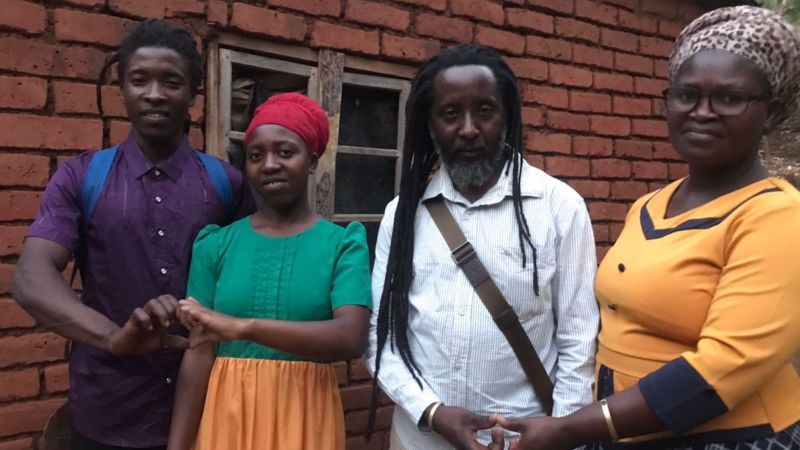
CNN
—
For years, Alli Nansolo grappled with whether to cut his son’s dreadlocks or not. Although it is not a legal requirement in Malawi, an unwritten policy enforced across government schools meant his son was being denied admission because of his hair.
Nansolo’s could not pay for private education for his son Ishmael from his modest dressmaking income and cutting his hair, an important symbol of their Rastafari religion, was inconceivable to him.
“Rastafari is a spiritual way of life. Keeping dreadlocks is like we are committing ourselves to a vow before the most high creator that we will serve him in our life without denying his laws or commandments,” Nansolo told CNN.
The 48-year-old makes between 200,000 to 300,000 Malawian Kwacha (around $194 to $291) monthly, while his wife Empress supplements the family’s income by selling secondhand clothes.
“I felt oppressed,” Nansolo said as he recalled the staff of a state-run secondary school in Zomba, southern Malawi. refusing to register Ishmael because of his hair.
Nansolo said he contacted an officer at the Ministry of Education who advised him to cut his son’s hair so that he could go to school.
Nansolo found himself caught up in the discriminatory policies of Malawian public schools and decided to take legal action against the Ministry of Education, along with a group of parents.
“I went to the Women Lawyers Association of Malawi to ask for help. The association accepted and we went to court in November 2017,” he said.
For three years, Ishmael, then 15, would remain out of school as the court case dragged on.
Then, in 2020, the Malawi High Court placed an interim order compelling public schools to enroll Ishmael and other Rastafari children until a final ruling was reached.
It was a legal victory that marked a significant milestone for the estimated 15,000 Rastafarian community in Malawi, according to Nansolo, who is also a community elder.
However, the temporary relief did not address the broader issue of discrimination that around 1,200 affected students face, their lawyer Chikondi Chijozi told CNN.
“We saw a number of Rastafari children being admitted into government schools but there were still reported cases of children of [the] Rastafari community being denied admission into government schools, and their parents were forced to take the court injunction to the school to compel them to admit them,” Chijozi said.
‘Free’ at last, but challenges remain
After a six-year legal challenge, the Malawian High Court delivered a landmark ruling on May 8.
The court ruled that it was unlawful to require learners, including Rastafarian kids, to cut their hair before they are enrolled into public schools.
The ruling came into immediate effect but the government has until June 30 to issue a nationwide statement mandating acceptance of all dreadlocked children into school.
Chijoki told CNN: “We got a judgment from the court which essentially upheld the rights of the Rastafari children and abolished the policy that requires all learners, including Rastafari children, to cut off their dreadlocks for them to be admitted into government schools.”
Nansolo expressed his community’s jubilation that their children could now finally continue their education.
“The judgment means that we are now free because most of us in [the] Rastafarian community don’t earn much, so we couldn’t manage to send our children to private schools,” Nansolo said.
“We are happy seeing that our children will now be going to public schools without being sent back or denied their right to education.”
CNN has contacted the education ministry for comment on the ruling.
Despite this victory, Malawi’s Rastafarian community still faces numerous challenges. Unemployment, poverty, and corporate discrimination persistently plague the community. Data on the community is hard to come by but the US State Department says around 5.6 percent of Malawi’s nearly 21 million population is formed of other religions including Hindus, Baha’is, Rastafarians, Jews, and Sikhs.
“Most of us rely on business to survive. Lack of jobs is a big challenge for the Rastafarian community because those in offices are reluctant to employ Rastas,” Nansolo said.
“The corporate world feels that being Rastafari is associated with criminality, but we are not like that.”

